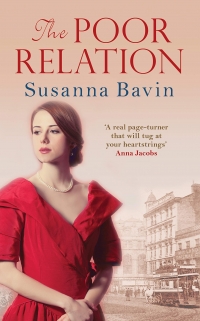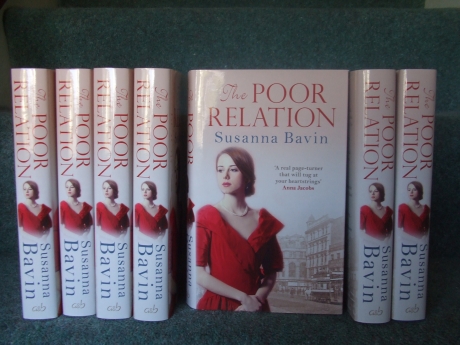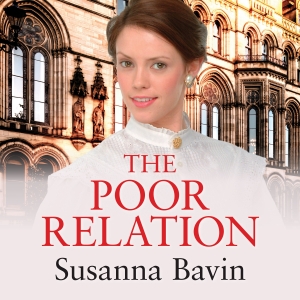When a writer starts getting reviews and other feedback on a new book, there can be some surprises in store. For example, there might be one character whom everyone seems to latch onto and love. In my latest book, The Poor Relation, this has happened with Helen Rawley. So what makes this crotchety old lady special to my readers? |  |
Well, it can’t be that she’s a nice person, because she definitely isn’t. Helen Rawley is a spiky individual, with a waspish tongue, who is quick to make judgements and who makes a habit of alienating the very people she most wants to be close to. She isn’t above a spot of manipulation when she sees the need – hence her scheme to get her great-niece Eleanor assigned to her as companion-help. And she doesn’t appreciate being thwarted – hence her unpleasantness, even one or two moments of cruelty, towards Mary when Mary is sent to her instead.
She doesn’t sound like a character with much appeal, does she?
So what is it that readers have latched onto? At the outset, I think they feel a certain sympathy for her. Helen is an elderly lady who never married. The story is set in 1908-1909, so most of Helen’s life was spent in the Victorian years as the spinster in a well-to-do family, dependent first upon her father and then upon her brother for the roof over her head and the food on her table; also for her dress allowance – hence her glee in buying glamorous under-garments and presenting her starchy brother with the bill.
When her father died many years previously, he effectively left Helen in his will to her brother Robert, who henceforward was responsible for her care and well-being. It wasn’t exactly a match made in heaven. Robert did his duty, but, as Helen was all too well aware, he enjoyed being in a position of power over her.
As it says in the book: "Robert had called her a chattel. 'The old man left me all his goods and chattels, including Helen here.' He would wave the stem of his pipe in her direction, inviting his dinner companions to enjoy the joke; but beneath the chuckle lay something more, a suggestion of pleasure and power."
At the start of The Poor Relation, Robert has died and once again Helen has been left to a male relative – this time to her nephew Greg, who is the very last person on whom she would wish to be dependent.
As Helen says, ‘God knows, I hated my brother at times, but I never once felt vulnerable. Ever since the reading of the will, I’ve been apprehensive. The will may be watertight, but he (Greg) feels no obligation.’
And she is right to be apprehensive – as the reader soon learns.
But it isn’t because of feeling sorry for her that readers like her. They enjoy her crochety character because her flaws make her real. And they like her spirit. As the story progresses, the extent of Helen’s dogged determination is revealed. Kept very much in her place by her brother, and ignored by Lady Kimber, the leading light of local society, Helen has never enjoyed a place in the world of dinner parties and at homes. She even has to undertake her charitable works in secrecy and let someone else take the credit for them – something that she finds deeply galling.
One of the themes of the book is the way women were regarded both socially and legally. With everything Helen Rawley has had to contend with throughout her life, a lesser person might have lapsed into being a downtrodden doormat. But not Miss Rawley. As one reviewer said of her, ‘had she been born a decade or so later, (she) would have been among those publicly fighting for women’s rights, I’m sure’ – because, above all else, Helen Rawley is a woman of spirit.
|
 |
The Poor Relation
on Kindle
on Kobo
in hardback from Amazon
in hardback from Waterstones
in hardback from Allison & Busby
pre-order the paperback from Amazon
|
The Poor Relation as an audiobook, read by Julia Franklin
on Audible
on CD or MP3 from Isis Soundings
|  |


Make A Comment
Comments (0)